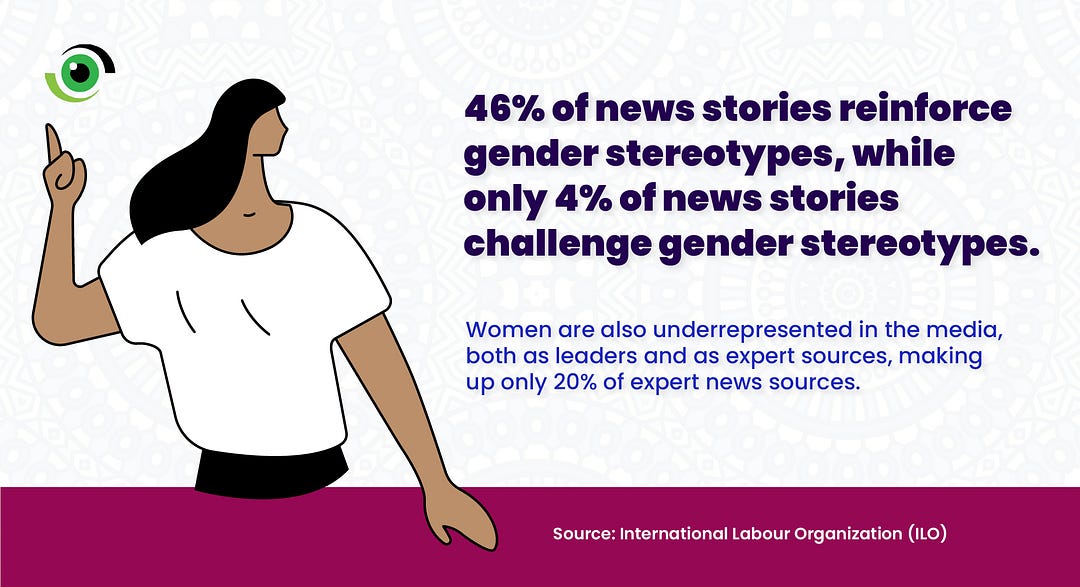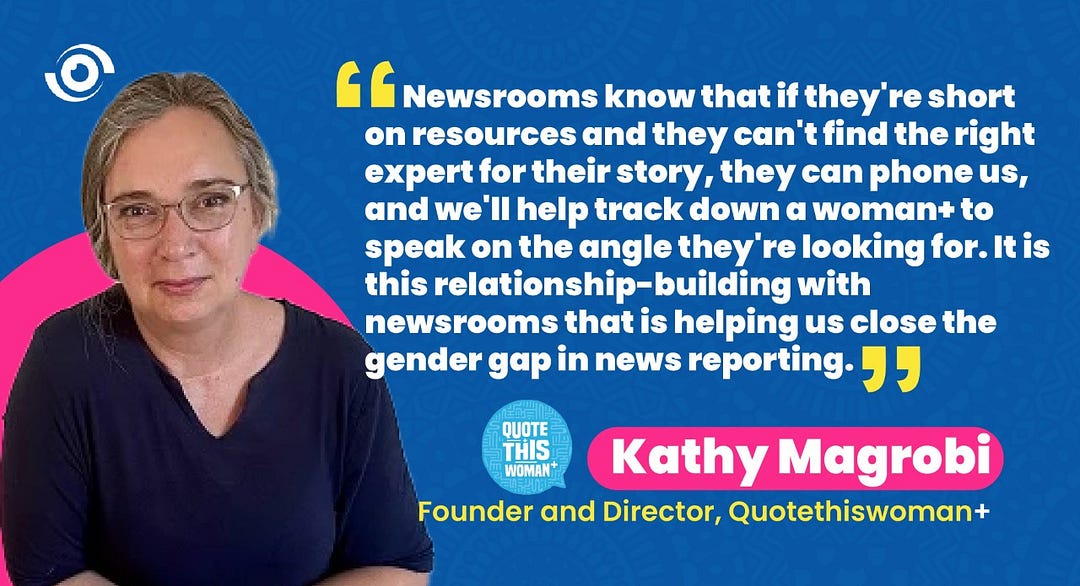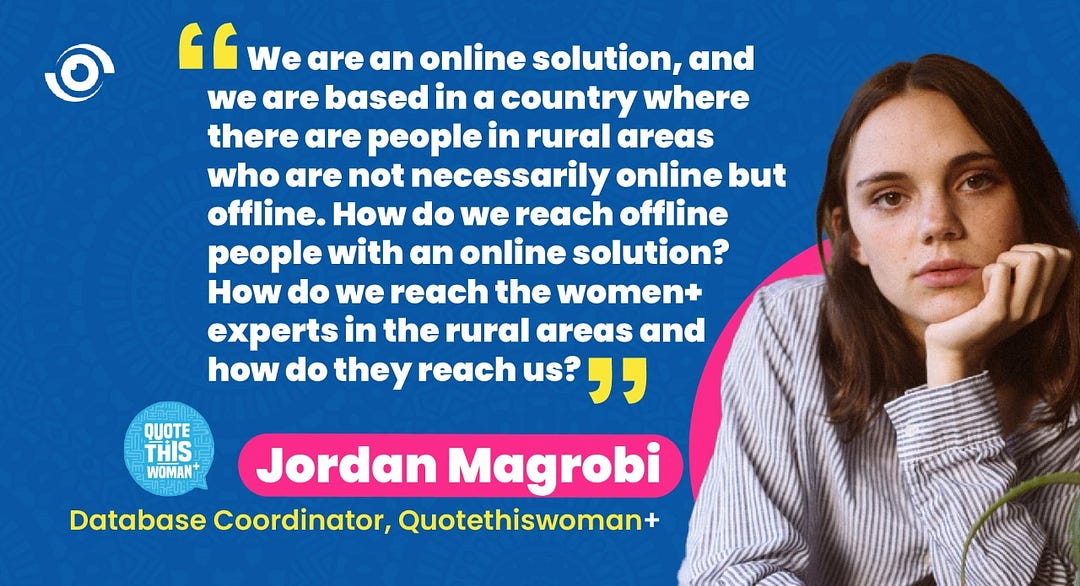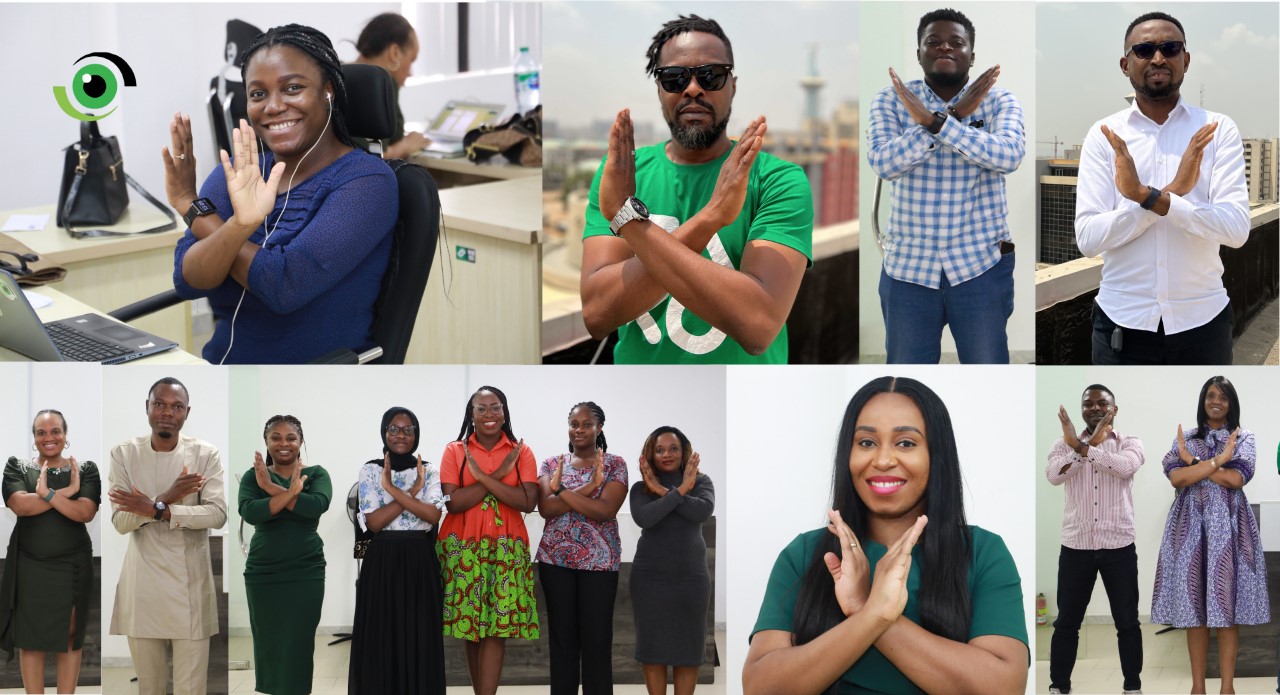By Kemisola Agbaoye and Hadiza Mohammed (Lead Writers)
Conquering gender bias is no easy feat as it is steeped in cultural and societal constructs that are difficult to break. In African society, social norms and gender stereotypes favour boys over girls in many aspects of their lives, further widening gender disparities and hampering social and economic progress. In Nigeria, women are historically misrepresented, with their roles relegated to domestic activities and caregiving. This misrepresentation is rife in the media, with print and digital media portraying women stereotypically as only wives or mothers. This means that women’s perspectives in news coverage is not taken into consideration and so increases their marginalisation.
According to the International Labour Organisation (ILO), 46% of news stories reinforce these gender stereotypes, while only 4% challenge them. Women are also underrepresented in the media, both as leaders and as expert sources, making up only 20% of expert news sources due to gender bias, lack of women leaders, and cultural challenges. How do we change the narrative and challenge the stereotypes to ensure that women’s voices are adequately represented in the media?

Finding Women Expert Sources
According to Reitumetse Makwea, a reporter with The Citizen newspaper in South Africa, finding women expert sources to quote on her stories has not always been easy, especially for someone who was straight out of university. “You would wait for hours… and some of them would even say you should work for your content. You have to work extra hard to get your content”. Then a fellow intern introduced her to Quotethiswoman+ (QW+).
QW+ is a South African not for profit organisation that provides a database of women experts across various fields, including economics, finance, politics, security, and health. It was founded in 2019 just before the South African elections by Kathy Magrobi, a media and communications strategist, in response to the fact that women’s voices were not being heard in the general elections.
The database includes women+ experts, meaning women and members of underserved and marginalised communities such as the LGBTQI+, the disabled, uneducated and those living in rural, hard to reach areas. Not entirely unique, it was inspired by databases like Women Also Know Stuff in the US, which provides women experts in political science to be quoted in research, invited to speak at conferences, write essays and op-eds, etc., and Informed Opinions in Canada, which amplifies the voices of women and gender-diverse individuals.
“What makes QW+ different is that we are not just a static database; we actively engage newsrooms and the changing face of journalism as it fights to exist in the face of economic pressure, fake news, attacks on the free press, and the additional stresses and work demands brought about by operating in a digital world. So, we don’t only supply journalists with access to women+ experts, but we take stringent steps to verify them as sources, to ease the pressure in the newsroom of wondering “Who is this person? Can we trust their voice?” said, Kathy Magrobi, Founder and Director, QW+.

The QW+ database is mostly populated by referrals; from The Conversation Africa, academic institutions and fellow women experts. Once a woman+ expert is referred, the QW+ team reaches out to ask her to join the platform, after which she is asked to fill a form with her details, such as qualifications, areas of expertise, etc. She is then vetted by the QW+ team, added to the database and subsequently accessed by journalists for interviews. The QW+ database currently has 600 women+ experts on it, across the Democratic Republic of Congo (DRC), Ghana, Kenya, Namibia, Nigeria, South Africa, Uganda, Zambia and Zimbabwe.
But finding willing women experts to join the database was not a walk in the park, according to Jordan Magrobi, Database coordinator at QW+. While they had originally thought that the challenge would be getting journalists to use the platform, they had found that women experts were unwilling because they had too much going on with unpaid work, full time jobs and PhDs, worsened by the fact that society has conditioned them to believe that their voices don’t matter much. To mitigate this, QW+ provides a training course for women+ experts where they recondition their minds to know that their voices do matter and teach them media interview skills. “They also offer great trainings and I’ve been for a couple of their trainings, and I think they are very cutting edge, and they take one out of the comfort zone.”, said Dr Shakira Choonara, a public health expert with the World Health Organisation (WHO) and UNWomen, who has been on the database for 3 years now and has seen it grow from a mere list to a full-fledged website.

For Teniola Tayo, a Nigerian policy analyst with the Institute for Security Studies who joined only a couple of months ago, being on the QW+ database has broadened her reach and improved journalists’ perception of her expertise. “I think it’s been pretty good so far, for me, because my experience is very diverse, and sometimes when people see my profile online it’s a bit confusing… but because Quote this woman is there, it’s very easy for people to see that okay, these are the range of topics that this person can speak about. And then the platform also adds credibility, so they know that you’re someone they can trust”.
Jordan, however, would like to see a more diverse representation on the database, particularly of people in hard to reach, rural areas. “We are an online solution, and we are based in a country where there are people in rural areas who are not necessarily online but offline. How do we reach offline people with an online solution? How do we reach the women+ experts in the rural areas and how do they reach us?” She acknowledged that this would require going out to actively engage these people, but they are constrained by funds as their work is funded by donors.

Connecting Women Experts with the Media
Mantsane Mofokeng, a journalist with 702 radio South Africa, first used the platform in early 2020 and was impressed with the diversity of experts on the database. “Yes, we do have our own database at the station, but what I realised the first time I used it was that it had like one or two professors and then I checked the QW+ database, and I realised that they had more experts, like in so many different fields”, she said.
QW+ connects journalists to women+ experts on the database in three ways: via a biweekly mailing list, on the website and by reaching out directly to journalists. While Mantsane has accessed QW+ experts through all three of these methods, Reitumetse primarily uses the website. Once she identifies an expert source on the database, she sends an email asking her questions. She, however, doesn’t always get a response from the experts, and would prefer that the website include the phone numbers of experts in the information it provides, allowing her to reach out to them directly when responses to emails stall. But the QW+ team excludes the phone numbers of women+ experts on the website to protect their privacy.
We need more of these platforms
In November 2021, Nigeria Health Watch organised the 6th Future of Health Conference tagged #BreakingTheCeilingNaija, where stakeholders discussed gender equality for sustainable development and proffered recommendations to increase women representation in media. Speaking at the Conference, Chris Ubosi, founder and managing director of Megalectrics, said “Women should be encouraged to seek opportunities in media. There should be training amongst journalists to discourage the current stereotypes and patriarchal ways. Professional societies should be encouraged to put female members forward as resource people”.
As we celebrate #IWD2022 and strive to #BreakTheBias, we need more platforms like QW+ that are deliberate about elevating women’s voices and positioning them as established experts in diverse fields, especially in Nigeria, where women still face prejudice and discrimination daily.
To pave the way for the next generation, we must actively amplify women’s voices in the media, advocate for gender parity for expert panels on all platforms including television and radio and challenge all stereotypes.


